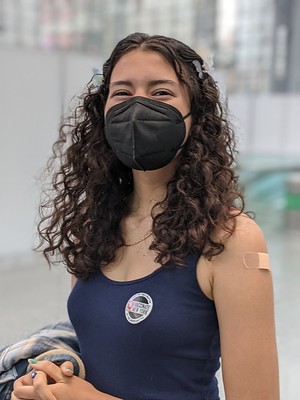Beginning in January, community colleges in Massachusetts will require students, faculty and staff to show proof of COVID-19 vaccination. This reverses the stance they took at the beginning of the fall semester. They cite the large uptick in the number of coronavirus cases among young people.
Initially, community college administrators provided a raft of reasons for not mandating the vaccine for campus personnel. They included vaccine availability, the commuter nature of most Massachusetts community colleges, and the impact of vaccine mandates on minority students.
As it turns out, none of these reasons stand up to the rising case load in Massachusetts.Also, vaccination is the one thing that seems to slow the progress of the disease.
The state hasn’t finished the mandate plan. Remaining questions include exemptions based on religious or medical beliefs; whether regular testing can substitute for vaccination; and how collective bargaining agreements impact vaccine mandates.
According to the Massachusetts Department of Public Health, unvaccinated individuals between the ages of 20 and 29 represent the demographic with the highest number of new cases of the virus. Administrators pointed to the fact that community college students have more interaction with the general public than students at a residential college would. That puts them at a higher risk of exposure and infection. Further, the commuter nature of a community college makes isolating affected students difficult.
COVID-19 caseload similar in Michigan
In Michigan, the statistics tell a similar story. Persons between the ages of 20 and 29 account for 18.6% of confirmed coronavirus cases. People ages 10-19 have recorded almost as many cases (per 100,000). The Delta variant accounts for the rapid rise in cases among unvaccinated individuals.
The 7-day case average in Washtenaw County has increased significantly in the past two weeks. According to state data, just 42% of persons in the state between the ages of 20-29 are vaccinated. 44% of individuals between the ages of 16-19 are fully vaccinated. Slightly more than one-third of people between the ages of 12-15 are fully vaccinated.
While young people don’t tend to die from COVID-19, death is not the only negative outcome of COVID-19 infection. Approximately one-third of all COVID-19 patients experience extended complications and long-term damage to vital organs, including the lungs, vascular system, brain and heart.
On the whole, however, Washtenaw County has a comparatively high vaccination rate. 70.6% of all vaccine-eligible residents are fully vaccinated. But vaccination rates among young people remain well below the overall county threshold. This means the unvaccinated population will drive Washtenaw’s COVID-19 caseload until most people have either contracted the virus or have gotten fully vaccinated.
Unfortunately, this will disproportionately impact the K-12 and higher education institutions. Just last week, AAPS reverted one elementary school to remote learning for a week to slow the spread of COVID-19 among its students. According to AAPS, their schools currently have the highest caseload among students and staff since the pandemic began.
Mandating the vaccine is the only rational course of action for our higher education institutions.
Photo Credit: Eden, Janine and Jim, via Flickr



















